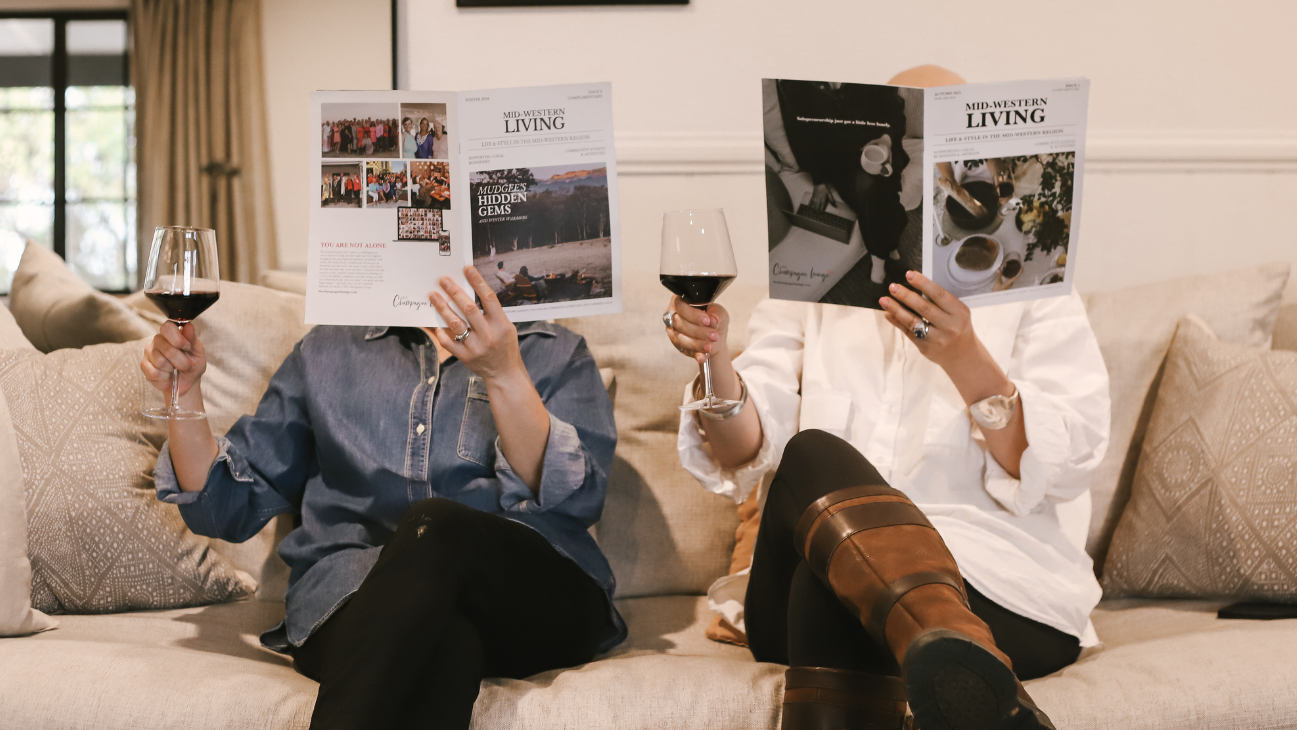Perimenopause: Regional Women Deserve Better
Apr 21, 2025
Written by Shelly Horton,
author of I’m Your Peri Godmother
I was 45 when my ovaries started spluttering like an old ute on a frosty morning. Perimenopause had arrived, but I didn’t know that - because I’d never even heard the word before.
Like most people, I thought menopause was something that happened to grey-haired women in their 60s and they got hot flushes then their periods stopped. I wasn’t in that category - I was a thriving as a journalist, running my own business, ShellShocked Media and I was kicking career goals. But then my body staged a mutiny.
Perimenopause hit me in 2020 - yes, that year. Turns out, a global pandemic and hormone chaos are a match made in hell. The stress and uncertainty masked my symptoms perfectly.
When I became anxious and depressed, I blamed stress. When I started having hot flushes, I thought it was the COVID kilos. When I suddenly bled through my clothes after 12 blissful, IUD-induced period-free years, I still didn’t put two and two together.
That period was what finally sent me to the GP. Unfortunately, she didn’t know much about perimenopause either. Instead of seeing the pattern, I was sent for blood tests and an ultrasound - just in case I had cervical cancer. When the tests came back clear, I was sent on my way with a pat on the head and advice to manage my stress better and “take up a hobby.”
Because let’s be real - most GPs are undereducated when it comes to perimenopause. And if you live in country areas? Good luck.
For women in regional areas, the struggle is even harder. I grew up in Kingaroy a rural town in Queensland, so I know what it’s like. City women might find a GP who understands perimenopause, but outside the capital cities, specialists are scarce and GP choice is limited.
Anyway I drove home from that Sydney GP appointment in tears, convinced I was just weak. But my symptoms only got worse.
My mental health plummeted. I cried daily. I lost motivation to work. Then came the days I couldn’t get out of bed. The weeks I didn’t shower for three days. The black dog of depression sat on my chest, and he was heavy.
And then I bled. For 62 days straight.
That was my breaking point.
After nearly a year of misery, my husband staged a gentle intervention. He quietly said, “I don’t think there’s anything wrong with you, but I think there might be something wrong with the chemicals in your brain.”
That was the push I needed. The next doctor did understand perimenopause. She put me on hormone replacement therapy (HRT) and an antidepressant. Within a month, I started to feel like me again.
It wasn’t an overnight fix, but it was a start. It took four years to truly get on top of my symptoms, and I still have to stay vigilant.
Looking back, I barely recognise the woman who went through that hell. Instead of just feeling grateful that I survived (because yes, it was survival), I felt angry.
I was let down by the sisterhood for not talking openly about perimenopause. I was failed by the healthcare system for its lack of education. And I was stunned when a psychologist asked me, “What’s perimenopausal depression?”
So, I turned my rage into action. I started campaigning in Parliament. I started to teach workplace menopause education. I spoke on national TV, wrote articles, gave keynote speeches, and shared my story on social media. And I wasn’t alone. Many women shared their lived experience during the Senate Inquiry into Menopause. Because keeping this as “secret women’s business” helps no one. And it worked! The government has announced half a BILLION dollars in funding for women’s health. And the opposition has said they will match it if they win the election. Woo Hoo!
Why This Matters for Regional Women
You will now get:
- Better education for GPs
- Longer menopause appointments
- National awareness campaign
- HRT on the PBS
Education is key. It’s why I wrote I’m Your Peri Godmother. It’s my story, laced with advice from world leading menopause experts, breaking down perimenopause in simple terms. It’s everything I wish I’d known at 45. Actually, at 40.
Perimenopause isn’t brutal for everyone, but for me, it was. That’s why I share it all - the hilarious, the horrific, and everything in between. Because no woman, no matter where they live, should have to go through this alone.
Feature in our next issue!
Each edition of Mid-Western Living is distributed to all high traffic venues around our region including retail stores, coffee shops, eateries, hotels, holiday rentals and wineries.
Stay connected with news and updates!
Join our mailing list to receive the latest news and updates from our team.
Don't worry, your information will not be shared.
We hate SPAM. We will never sell your information, for any reason.



